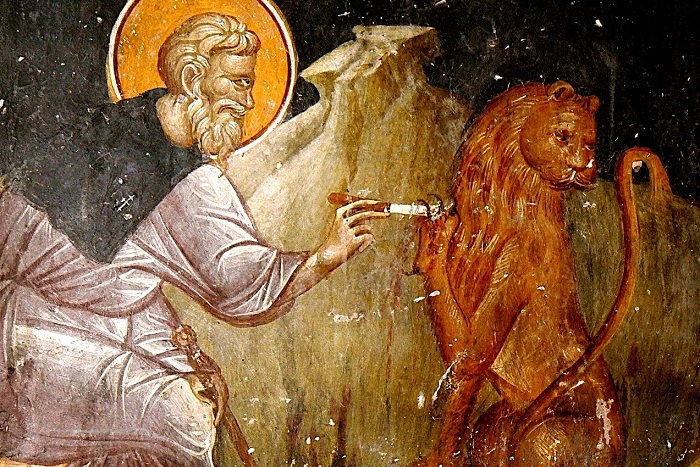
If you fall, rise up. If you fall again, rise up again. Only do not abandon your Physician, lest you be condemned as worse than a suicide because of your despair. Wait on Him, and He will be merciful, either reforming you, or sending you trials, or through some other provision of which you are ignorant.
For the devil is in the habit of promoting in the soul whatever he sees is in accordance with the soul’s own disposition, whether this be joy or self-conceit, distress or despair, excessive toil or utter indolence, or thoughts and actions that are untimely and profitless, or blindness and unreflecting hatred of all that exists.

Quite simply, he inflames in the soul whatever material he finds there already, so as to do it as much harm as he can, even though in itself the thing may be good and acceptable to God, provided that it is used with due restraint by one who is able to judge things and to discern the intention of God hidden in the six passions that surround him – those, that is, above him and below, to his right and to his left, within him and without. Whether it relates to the practice of the virtues or to spiritual knowledge, there is some good purpose lying within the six passions that oppose him.
Thus, as St. Antony says, we should always seek counsel about everything; and we should consult not just anyone, but those who have the grace of discrimination; for if the person we consult lacks experience, we may both fall into the ditch, as in the example given in the Gospel (cf Matt. 15:12-14).
For without discrimination nothing good is ever done, even though to the ignorant it appears to be altogether good; for what is done without discrimination will be either untimely, or profitless, or disproportionate, or beyond the strength or knowledge of the person doing it, or faulty in some other way. He who has the gift of discrimination has received it on account of his humility. Through it he knows all things by grace and, when the time is ripe, he attains spiritual insight.

From inward grief, then, and patient endurance come hope and detachment; and through hope and detachment we die to the world. We may also die to the world by enduring patiently and by not despairing when we see everywhere dismay and death, knowing that this is both a trial and an illumination; or by not being over-confident about having reached our goal.
Shedding many tears of distress, we begin to see clearly before us the holy sufferings of the Lord, and we are greatly solaced by them. And we truly regard ourselves as inferior to all other men, perceiving how many blessings are bestowed on us through the grace of God, to whom be glory and dominion through all the ages. Amen.
From: “Twenty-Four Discourses,” VIII Mortification of the Passions,
The Philokalia: The Complete Text (Vol. 3)




